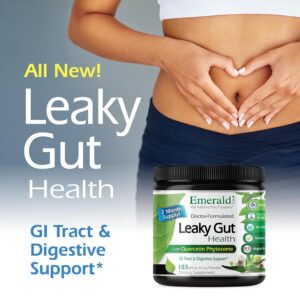
Maintaining a healthy heart requires consistency and a commitment to living a healthy lifestyle – like keeping up on a regular exercise routine, eating proper amounts of fruits and vegetables, and kicking bad habits like smoking or drinking.
There are many great ways to keep your heart in tip-top shape, but which ones are most effective?
While we can’t speak to what will or won’t be the best option for you specifically, we do know what habits have been researched, tested, and shown to be some very effective practices to support overall health – specifically with the heart.
What are these scientifically-backed ways to support a healthy heart? Let’s dive in…
#1: The Mediterranean Diet
You may have heard of the Mediterranean Diet, or MedDiet, through friends or social media. It’s pretty popular and fairly simple to follow. Most of the foods on the Mediterranean Diet include a high intake of plant foods, low intake of red meat, some fish, low amounts of dairy, some wine, and of course, healthy fats like olive oil.
The Mediterranean Diet first came about in the 1950s when it was noted that heart disease was not as common in Mediterranean countries as it was in the U.S. Since then, numerous studies have confirmed that the Mediterranean diet helps prevent heart disease and stroke.
This brochure is a great resource that maps out the various foods allowed on the diet.
#2: Antioxidants

What are antioxidants? The National Center for Complementary and Integrative Health tells us “Antioxidants are man-made or natural substances that may prevent or delay some types of cell damage. Diets high in vegetables and fruits (like the MedDiet), which are good sources of antioxidants, have been found to be healthy.”
Antioxidants help to fight against oxidative stress caused by free radicals. Oxidative stress is thought to play a role in a variety of diseases including cancer, cardiovascular diseases, diabetes, Alzheimer’s disease, Parkinson’s disease, and eye diseases such as cataracts and age-related macular degeneration.”
Studies have shown antioxidants to counteract oxidative stress. NCHI shared a 2009 analysis using data from the National Health and Nutrition Examination Survey (1999–2000 and 2001–2002) estimated the amounts of antioxidants adults in the United States get from foods and supplements. Supplements accounted for 54 percent of vitamin C, 64 percent of vitamin E, 14 percent of alpha- and beta-carotene, and 11 percent of selenium intake.
Want to know which foods are rich in antioxidants? Check out this list provided by the USDA.
#3: Regular Exercise

According to Hopkins Medicine, there are specific types of exercise that benefit heart health more than others.
Aerobic Exercise: Helps to improve circulation, which results in lowered blood pressure and heart rate, and increases how well your heart pumps. Aerobic exercise also reduces the risk of type 2 diabetes and, if you already live with diabetes, helps you control your blood glucose. Try to fit in at least 30 minutes 5 days a week for best results.
Strength Training: Also known as resistance training, uses weights to help build lean muscle mass and reduce fat. Research shows that a combination of aerobic exercise and resistance work may help raise HDL (good) cholesterol and lower LDL (bad) cholesterol.
Stretching: Although flexibility doesn’t contribute directly to heart health, it allows your muscle to remain long which can help to alleviate joint pain allowing your body to enjoy better aerobic and strength training.
These are all great habits that if done regularly will not only keep you feeling great but also help improve heart health.
It’s great to combine healthy habits with healthy supplements. As you know we have a great selection of heart-healthy supplements that can be found on our Heart Supplements page.
Enter code "HEART" in the order summary section at checkout to save an Extra 15% off your purchase.
Formulated by Dr. Mark Stengler NMD.
Known as America’s Natural Doctor to his patients, readers and audiences across North America, Mark Stengler is a licensed naturopathic medical doctor. His passion is to combine the best of conventional and natural medicine to achieve optimized health for his patients. Dr. Stengler has personally formulated each of the Emerald Labs Additive-Free products according to the high standards of his health practice. Read more about Dr. Stengler…
*These statements have not been evaluated by the Food and Drug Administration. This product is not intended to diagnose, treat, cure or prevent disease. CONSULT YOUR PHYSICIAN OR OTHER QUALIFIED HEALTH CARE PROVIDER FOR ADVICE REGARDING ANY MEDICAL CONDITION. DO NOT ATTEMPT TO SELF-DIAGNOSE OR TREAT ANY MEDICAL CONDITION.
†Selected References








